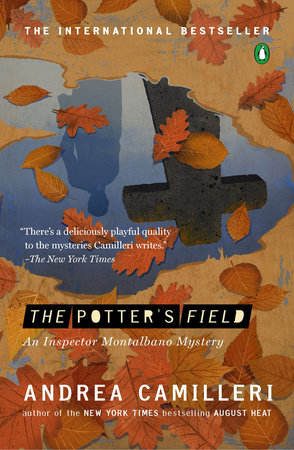rclayton reviewed Potter's Field by Andrea Camilleri
The Potter’s Field
This time the corpse is disfigured beyond recognition; nothing much happens until a distraught wife files a missing-persons report for her sea-faring husband. Montalbano spends the idle time channeling his inner Umberto Eco to appreciate the murder’s semiotics, although, given the story’s biblical theme, maybe it’s more like the murder’s hermeneutics. Once the story gets going, it quickly gets twisted inside and outside the police station. The ending is one of those where Montablano does all the work and gets none of the credit, but — in one of those twists — Augello can’t get any credit either. As a bonus, the biblical references got me to thinking that Catarella’s annoying “poissonaly in poisson” exclamation may have been inspired by all those “creeping thing that creepeth” in the Old Testament. Overall a story good enough to let you (i.e., me) overlook the habitual irritations in the telling, and it strengthens …
This time the corpse is disfigured beyond recognition; nothing much happens until a distraught wife files a missing-persons report for her sea-faring husband. Montalbano spends the idle time channeling his inner Umberto Eco to appreciate the murder’s semiotics, although, given the story’s biblical theme, maybe it’s more like the murder’s hermeneutics. Once the story gets going, it quickly gets twisted inside and outside the police station. The ending is one of those where Montablano does all the work and gets none of the credit, but — in one of those twists — Augello can’t get any credit either. As a bonus, the biblical references got me to thinking that Catarella’s annoying “poissonaly in poisson” exclamation may have been inspired by all those “creeping thing that creepeth” in the Old Testament. Overall a story good enough to let you (i.e., me) overlook the habitual irritations in the telling, and it strengthens my opinion that Montalbano works best when Camilleri writes him as a Philip Marlowe type.

